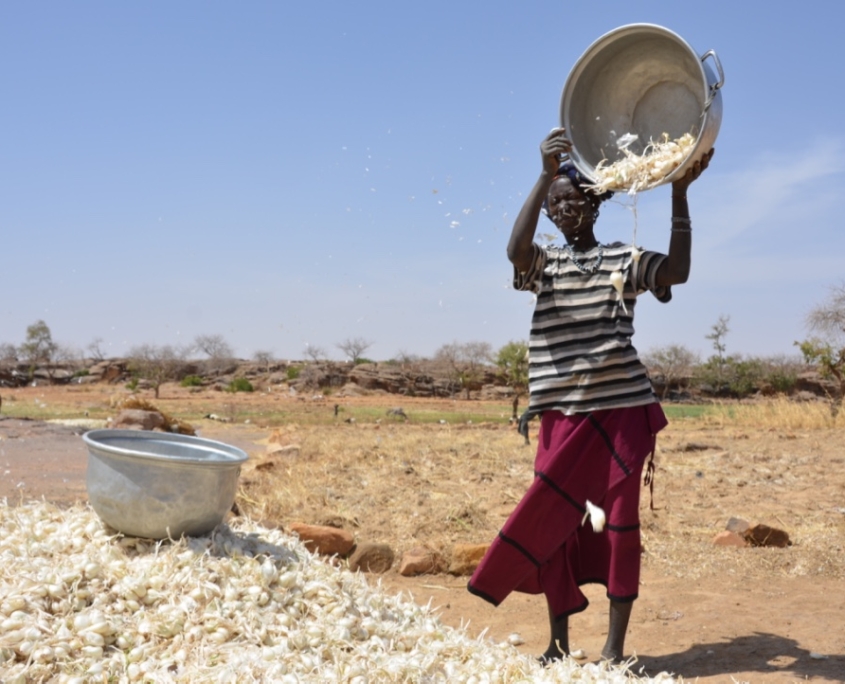Hunger in Mali Driven by Drought and Conflict
 Mali, the eighth-largest country in Western Africa, has a population of 24 million people. Nearly half live in extreme poverty and 1.3 million people are experiencing acute food insecurity and hunger driven by drought and conflict.
Mali, the eighth-largest country in Western Africa, has a population of 24 million people. Nearly half live in extreme poverty and 1.3 million people are experiencing acute food insecurity and hunger driven by drought and conflict.
Today’s crisis in Mali
Hunger and poverty in Mali have worsened in recent years, primarily driven by climate change impacts, including severe droughts and over a decade of ongoing conflict. The Sustainable Development Report indicates that Mali is significantly off track in achieving SDG2, which aims for zero hunger by 2030, as the population suffering undernourishment increased from 4.2% in 2015 to 12.8% in 2021. The situation is even worse for children under 5, with 1.5 million affected by acute malnutrition and 22% facing stunted growth.
- Conflict- The conflict in Mali, which began in 2012, has severely disrupted agriculture, devastated livestock populations and forced 355,000 people, including farmers, to flee their homes. Aid organizations have also struggled to assist in certain areas due to ongoing violence or destroyed road networks. Additionally, the conflict has taken a toll on the country’s economy by destroying businesses like fishing, trade, etc, due to security threats, extortion and destruction of infrastructure. The combination of these has led to a 150% increase in food prices over the last five years.
- Droughts- Mali, a country reliant on agriculture and livestock, has been hit by persistent droughts. These droughts have reduced crop yields immensely because of land degradation and water scarcity. This year’s cereal harvest was 3% less than in 2023 because of erratic rainfall. The droughts have reduced the grazing land, negatively impacting the livestock population.
Hope Amid Crisis
Some organizations have been working in Mali to reduce the suffering and despair of the population. The text describes the commendable efforts of two such organizations.
- Food and Agriculture Organization– The FAO assists vulnerable farmers with seeds and tools in Mali. It also collects and analyzes data to prepare policies and interventions and trains farmers to build capacity and resilience against climate challenges and droughts. The organization has helped millions in recent years.
- World Food Program– The WFP provides help with cash and food to communities in severe need. It helps reduce malnutrition in children under 5 by providing supplemental feeding and increasing awareness through community reach programs. It also provides air support in areas with poor roads or increased security threats. It also runs long-term programs to build resilience in the community.
The Road Ahead
The challenges of hunger and food insecurity in Mali are daunting. Still, the efforts of organizations like the FAO and WFP and the resilience of Mali’s people offer a beacon of hope for the future. With continued support and international collaboration, Mali can move closer to achieving zero hunger and improving the quality of life for the people, ultimately contributing to a more stable and prosperous future.
– Leah Potter and Maria Waleed
Photo: Flickr
Updated: November 4, 2024
